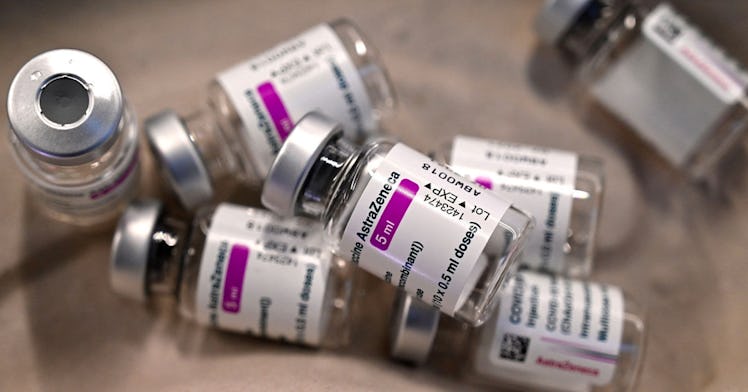AstraZeneca Vaccine Updates Efficacy Data — What to Know
After a series of bungled missteps with the AstraZeneca vaccine rollout, the vaccine maker has updated efficacy data.

In the waning days of March, AstraZeneca had announced that a US study found that their vaccine reduced symptomatic COVID-19 disease by 79 percent and severe COVID-19 disease and hospitalization by 100 percent. They also stated that the vaccine was equally effective in people over the age of 65.
Now, according to a group of U.S. health officials, it appears that AstraZeneca may have cherry-picked that data in order to make the vaccine look more effective than it may be.
Here’s what to know about the data itself, if the AstraZeneca vaccine is still effective, and if it could still get approval in the United States, and what AstraZeneca’s recently updated data shows about the vaccine’s efficacy that might be surprising.
Is the Vaccine Still Effective?
Yes. The vaccine is still effective. The argument is around the percentage of effectiveness. While AstraZeneca said that the vaccine was 79 percent effective, the experts who lambasted the company for manipulating data said that the efficacy is likely between 69 and 75 percent, per Washington Post. (More on that below.)
This is still a very effective vaccine. And it’s why the manipulation of data is terrible from a public health perspective — because it could erode trust in a vaccine that has already had a troubled roll-out (the vaccine was paused in Europe and later Canada after concerns over blood clots.) It’s also easier to store than other vaccines, making it another great option in the fight to inoculate the world against COVID-19.
What Happened With The Data?
The company didn’t forge data — but used early data about the efficacy of the vaccine, rather than most recent data about how well it works. Once again: the vaccine is still effective!
The data that showed the vaccine had 79 percent efficacy was gathered through February 17, and the data showing the vaccine was about 75 percent effective at protecting against symptomatic COVID-19 was gathered through March 16, with the caveat that more data might slide the efficacy down to 69 percent. The “unforced error,” says Dr. Fauci, serves only to erode the public’s confidence in a vaccine that’s effective and easy to distribute.
One federal official told The Washington Post that the data used by AstraZeneca and Oxford was like “telling your mother you got an A in a course, when you got an A in the first quiz but a C in the overall course.”
AstraZeneca Released New Efficacy Data. What Does That Mean?
Just a few days ago, AstraZeneca released new data showing that the COVID-19 vaccine is 76 percent effective in preventing illness from COVID-19. The revised data also, rather surprisingly, became more effective in people over 65. It jumped from 80 percent efficacy to 85 percent efficacy in the new data. It is still 100 percent effective against death and severe cases of the virus.
Could It Still Be Approved in the United States?
Yes, though this error does not help AstraZeneca’s case.
AstraZeneca is still vying for FDA approval of the vaccine, and the United States pre-ordered 300 million doses of it. But many are concerned that the bungled roll-out of the vaccine will have people not wanting what is a genuinely effective vaccine.
This article was originally published on